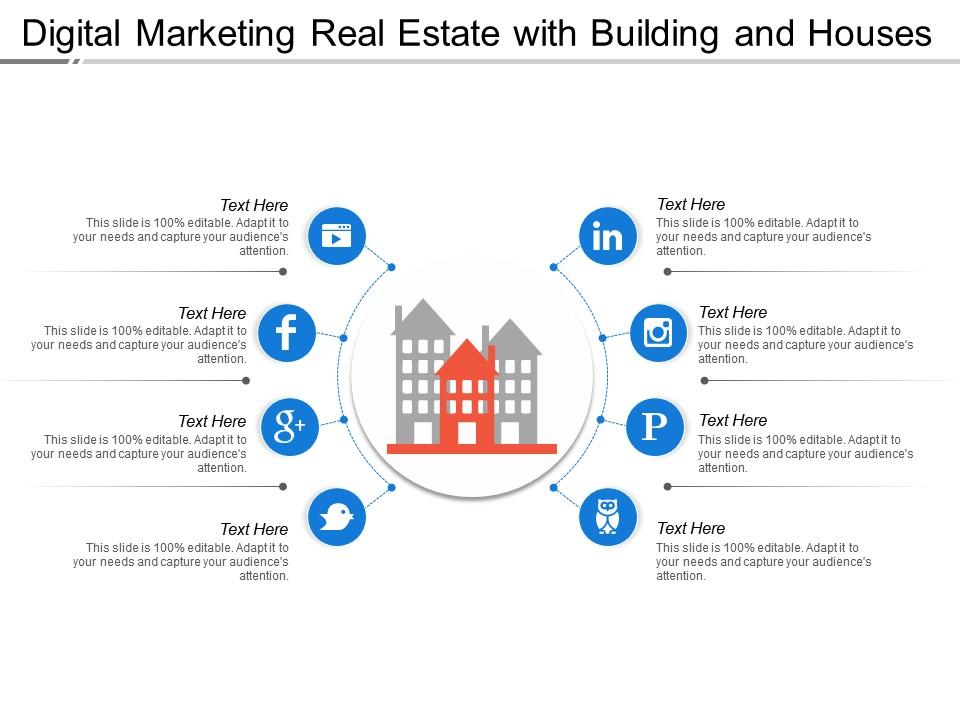
Grow Your Real Estate Business with These Down-to-Earth Digital Marketing Tips
The real estate industry has witnessed a significant transformation in recent years, with more businesses embracing digital marketing strategies to stay ahead of the competition. As more buyers turn to the internet for information, it’s vital for real estate professionals to
leverage digital marketing effectively to capture attention, generate leads, and convert sales. This article explores key strategies for boosting your digital marketing efforts in the real estate business. As more buyers turn to the internet for information, it’s vital for real estate professionals to
Understanding the Importance of Digital Marketing in Real Estate
In today’s digital age, most homebuyers start their property search online. Whether it’s browsing listings, reading reviews, or looking for agents, the internet plays a pivotal role in the decision-making process. Real estate businesses that neglect digital marketing risk missing out on significant opportunities to attract and engage potential clients. By utilizing a robust digital marketing strategy, you can improve your online presence, build trust with your audience, and ultimately drive sales.
Developing a Strong Online Presence
Your online presence is the foundation of your digital marketing strategy. This includes your website, social media profiles, and any other platforms where your business is active. A professional, user-friendly website is non-negotiable in today’s market. Make sure your site is mobile-responsive, as a large percentage of users access information from their smartphones. In addition, use high-quality images, engaging content, and a simple navigation system to provide a seamless user experience.
Search Engine Optimization (SEO) for Real Estate
SEO is one of the most powerful tools for improving your online visibility. By optimizing your website for search engines, you can ensure that potential clients find your business when they search for real estate-related terms. Start by identifying the most relevant keywords for your target audience. This could include terms like “homes for sale in [location]” or “best real estate agents in [city].” Incorporate these keywords naturally into your content, meta descriptions, and title tags to improve your rankings. Don’t forget to focus on local SEO, as most real estate searches are location-specific.
Content Marketing: Building Authority and Trust
Content marketing is a key component of any successful digital marketing strategy. By providing valuable, informative content, you position yourself as an expert in the real estate field. Consider starting a blog that covers topics such as the home-buying process, market trends, or investment advice. This not only drives traffic to your website but also builds trust with potential clients. Content can come in many forms, including blog posts, videos, infographics, and eBooks. Diversifying your content ensures you appeal to different types of users.
Utilizing Social Media for Engagement
Social media is a powerful tool for engaging with your audience and promoting your services. Platforms like Facebook, Instagram, and LinkedIn are particularly popular in the real estate industry. Regularly posting updates, property listings, and real estate tips can help you stay top-of-mind with your audience. Instagram, in particular, is a visual platform that is perfect for showcasing homes through high-quality photos and virtual tours. Don’t forget to use social media ads to target specific demographics or geographical areas, which can generate more leads.
Email Marketing: A Personalized Approach
Email marketing remains one of the most effective ways to nurture relationships with potential clients. By sending personalized content directly to their inbox, you keep your brand top-of-mind. Segment your email list based on the specific interests of your subscribers—whether they’re first-time buyers, investors, or looking to sell. Providing them with targeted, valuable information will increase the chances of them turning into loyal clients. Additionally, include clear calls to action in your emails to encourage immediate engagement.
The Power of Video Marketing in Real Estate
Video marketing is increasingly becoming a must-have tool for real estate businesses. Buyers want to see the properties they are interested in, and video tours offer a convenient way to showcase homes online. Platforms like YouTube, Facebook, and Instagram are ideal for sharing video content. Not only do videos provide a more engaging way to display listings, but they also improve your SEO, as search engines tend to favor video content. Whether it’s a virtual home tour or client testimonials, videos can build a deeper connection with potential buyers.

Pay-Per-Click (PPC) Advertising for Immediate Results
While SEO is a long-term strategy, PPC advertising delivers immediate results. With platforms like Google Ads, you can place your real estate business in front of users who are actively searching for properties or agents in your area. PPC ads allow for highly targeted marketing, meaning you can define your audience based on factors like location, age, and income. This ensures that your ads are being shown to people who are most likely to convert into clients.
Leveraging Online Reviews and Testimonials
Online reviews and testimonials play a critical role in building trust with potential clients. Many people rely on reviews to make decisions about real estate agents and properties. Encourage satisfied clients to leave reviews on platforms like Google My Business, Zillow, or your website. Positive reviews not only improve your credibility but also help with local SEO rankings. Testimonials, whether written or in video form, serve as powerful social proof for your business.
Analyzing and Adjusting Your Strategy
Finally, to ensure that your digital marketing efforts are yielding results, you need to consistently analyze and adjust your strategy. Use tools like Google Analytics to monitor website traffic, engagement rates, and conversion rates. A/B testing can help you identify what works best for your audience, whether it’s email subject lines, ad copy, or landing page layouts. By regularly reviewing your performance, you can make data-driven decisions and refine your approach for better results.
Digital marketing isn't just a skill, it's the power to grow your business beyond borders.
OCP Academy Tweet
In the highly competitive real estate market, a strong digital marketing strategy is no longer optional—it’s essential. From SEO and content marketing to social media and PPC ads, the possibilities for reaching and engaging with potential clients online are vast. By implementing the strategies discussed in this article, you can boost your online presence, build trust with your audience, and ultimately increase sales in your real estate business.
To truly master these skills and elevate your business, learning from a reputable source is crucial. OCP Academy’s Digital Marketing Program offers expert guidance to help you develop the tools and strategies needed to thrive in the digital space. With practical training in the latest techniques, you’ll not only improve your business’s visibility but also gain the confidence to navigate the ever-evolving digital landscape. Enroll today, and watch both your business and skillset soar to new heights! Remember, the key to success in digital marketing is consistency, creativity, and adaptation to change—start that journey with OCP Academy.

